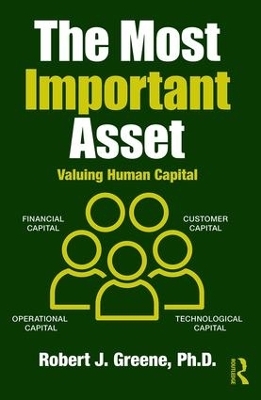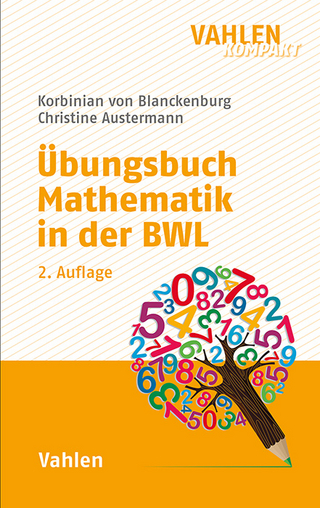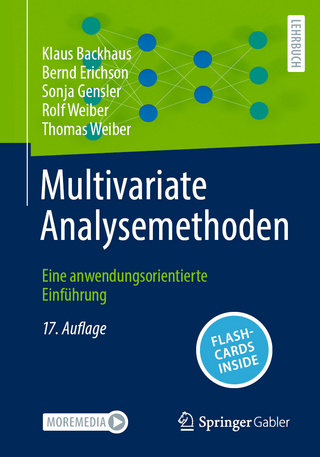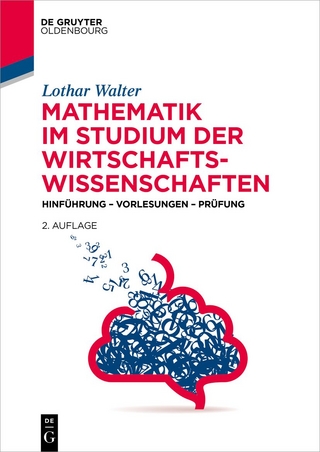
The Most Important Asset
Routledge (Verlag)
978-1-138-30649-3 (ISBN)
The Most Important Asset is a story about new graduates entering the human resources field, encountering and dealing with workforce management challenges and issues and developing their own professional competence through experience. Principles are presented and alternative solutions to problems are explored, providing the reader with a roadmap for analyzing situations and making decisions as to how to act. Placing the characters in different types of organizations provides insights into how different contexts call for different strategies. Alternative strategies for staffing an organization, developing its people, defining, measuring and rewarding performance are used to illustrate how what is done should be compatible with the mission, culture, organizational strategy, and internal and external realities.
Robert J. Greene, Ph.D., is CEO of Reward Systems, Inc. and faculty for DePaul University, USA. He has over 40 years of industry, consulting and teaching experience. He is author of over 100 articles/book chapters, including Rewarding Performance: Guiding Principles; Custom Strategies and Rewarding Performance Globally: Reconciling the Global–Local Dilemma. Robert was the first recipient of the Keystone Award for achieving the highest level of excellence in the human resources field.
1 Preparing for the real world
New graduates prepare themselves for their transition into the business world.
2 Entering the real world
The characters find employment in different types of organizations.
3 Making sense of the real world
The differences between their organizations cause the characters to struggle with how differences impact the effectiveness of workforce management strategies.
4 Assessing organizational context
The impact of the characteristics of the different contexts on policies and programs are assessed and ways to accommodate differences are explored.
5 Facing a down economy
Changing economic conditions impact organizations differently and ways to operate effectively under the new conditions are sought.
6 Evaluating alternative HR strategies
The different organizations attempt to find strategies that enable them to cope effectively with environmental realities.
7 Learning from others
The characters attend a professional association conference and attempt to find answers for their own organizations to pressing issues.
8 Expanding horizons
Annette begins facing global workforce management issues and attempts to find ways to deal with issues raised by operating with a culturally diverse workforce.
9 You win some, you lose some
Don struggles with convincing the senior management team at the utility that changes are needed, meeting with limited success.
10 Considering new career frontiers
Rob begins a transition into the academic world and Don continues to be frustrated in selling what he believes to be the right path.
11 Life in the (not so?) real world
Rob finds his world to have transformed as he attempts to find how the findings of research can be reconciled with the practices common in organizations.
12 Stepping into new roles
Annette and Don are approached about openings in different organizations and decide to make career changes into roles involving management responsibility.
13 New challenges in new roles
Annette and Don begin to recognize that the contrasts between managing and doing work as a specialist are more pronounced than they imagined.
14 Learning the value of applied research
Rob continues finding ways of benefitting practice with research that is relevant to organizations.
15 Recognizing that HR is everyone’s job
Annette and Don apply the principles of effective workforce management learned in school to managing and ask Rob to do a seminar on lessons from academia.
16 The five-year reunion
The three attend a reunion at their university and explore the impact of different career directions with classmates.
17 Want to trade jobs?
Annette and Don realize that it is time for them to switch jobs since their strengths can better be capitalized on by doing so.
18 Educating students and practitioners
Annette and Don encourage Rob and new partner Kathy to create a seminar on effective workforce management suited for both students and practitioners.
19 The "doing HR better" dialogue
The seminar focuses on a dialogue between a wide variety of participants, resulting in a recognition that there is no one best way; what works is what fits.
20 Transformation at the not-for-profit
Annette begins an assessment of outsourcing activities that are not a core competence of the organization.
21 Opportunity knocks
Don makes a change and joins a large private sector multinational organization that has many of the things in place that were lacking in his employer.
22 Work–life balance becomes a focus
Annette discovers that work-life balance is a major concern for her staff and explores alternative policies and programs to address the issues.
23 Staffing the multinational
Don brings Kathy in to develop a research unit to inform workforce management strategy, policy and programs.
24 Let’s buy something
The multinational explores a merger with a major competitor, and Don launches a campaign for workforce planning to avoid common problems with mergers.
25 Friends and colleagues join the multinational
Annette and Rob are recruited by the multinational, bringing the foursome together within the same organization.
26 The merger materializes
The HR team works to develop policies and programs that fit the merged organization and explores intellectual capital and property as a source of value.
27 Improving HR service levels and productivity
An HR Service Center is created that will enable employees to be serviced better and the HR function to focus on becoming more efficient.
28 You can look too good
The multinational’s reputation results in a takeover by a venture capital firm, and the HR team decides to exit and create a consulting firm.
29 Reconciling research and practice
The new consulting firm focuses on ensuring their practice is based on sound evidence and explores how to align research and practice.
30 The ten-year reunion
The classmates attend their ten-year reunion and reflect on where they have been and where they plan to go in their careers.
31 Let’s be strategic
The debate about what "strategic" means leads the team to examine the perspective they adopt when recommending policies and programs.
32 Motivating and rewarding sales personnel
The consulting firm advises a client on how it motivates and rewards its sales staff, utilizing its focus on taking a strategic view.
33 Defining core capabilities
The consulting firm examines those capabilities that are core to its business strategy and decides to focus on analytics and the associated technology.
34 Evaluating executive compensation strategy
The consulting firm assists a client with developing an executive compensation philosophy and programs that fit the client’s business strategy.
35 Formulating a global workforce strategy
The consulting firm partners internationally and explores issues related to managing a global workforce, including rewards and leadership.
36 Focusing the professional practice
Recognizing that being all things to all organizations is not an effective consulting strategy, the firm attempts to align its practice with its competence.
37 Compensation: can it be a satisfier?
The consultants examine the role that compensation can play and realize that its impact is dependent on how well it is managed and how well compensation strategy fits the organization and the workforce.
38 Reflections on careers
Don, Annette and Rob reflect on their careers in the public sector, the not-for-profit sector, the private sector and academia.
39 The twentieth reunion
The attendees discuss their different career paths and their satisfaction with what they had accomplished in their professional lives.
| Erscheinungsdatum | 01.11.2017 |
|---|---|
| Zusatzinfo | 12 Tables, black and white; 28 Line drawings, black and white; 28 Illustrations, black and white |
| Verlagsort | London |
| Sprache | englisch |
| Maße | 156 x 234 mm |
| Gewicht | 589 g |
| Themenwelt | Mathematik / Informatik ► Mathematik ► Finanz- / Wirtschaftsmathematik |
| Wirtschaft ► Allgemeines / Lexika | |
| Wirtschaft ► Betriebswirtschaft / Management ► Personalwesen | |
| Wirtschaft ► Betriebswirtschaft / Management ► Unternehmensführung / Management | |
| ISBN-10 | 1-138-30649-5 / 1138306495 |
| ISBN-13 | 978-1-138-30649-3 / 9781138306493 |
| Zustand | Neuware |
| Haben Sie eine Frage zum Produkt? |
aus dem Bereich


